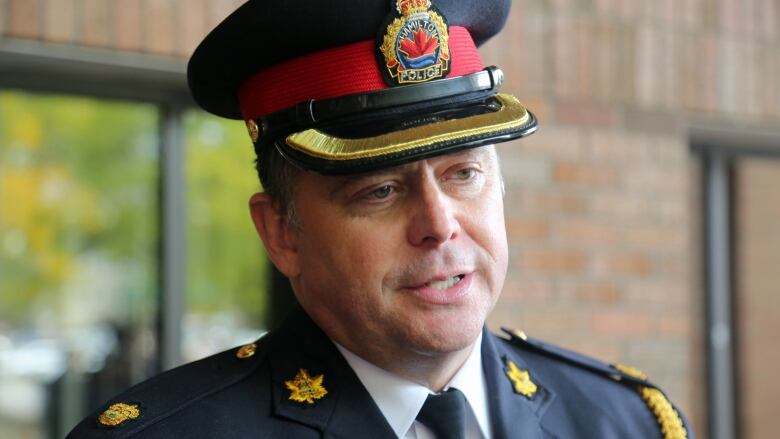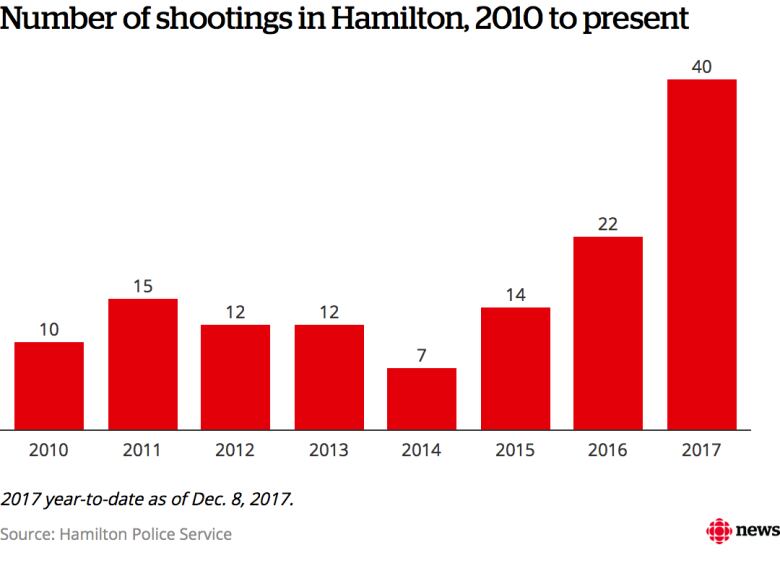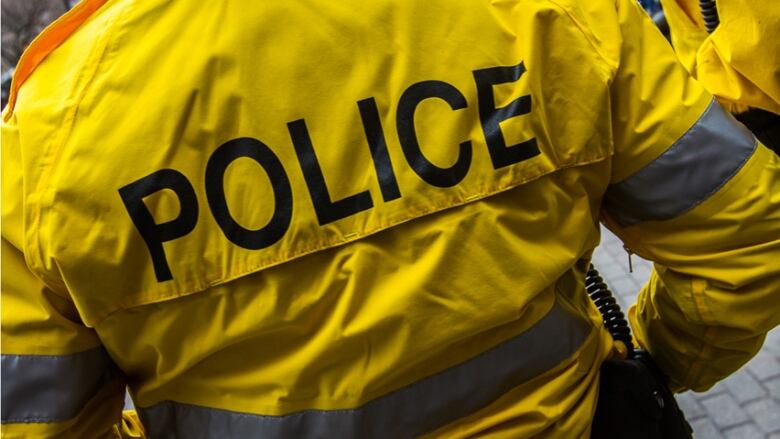How will police purge data from 'almost 20,000 street checks?' board member asks
'We've got close to 20,000 street checks in our database,' Madeleine Levy says

Hamilton police have information on people collected from thousands of "street checks" since 2010 but the police board doesn't yet know how the service will get rid of that data.
Hamilton police board member Madeleine Levy called Thursday for a clearly defined policy on what Hamilton police does with information.
Even though the controversial practice of collecting ID from people not necessarily accused of crimes has dwindled and been regulated, the records from before still exist.
"We've got close to 20,000 street checks in our database," Levy said. "That was one of the things that I heard loud and clear from our community in the town hall meetings.
"How are we going to look at purging some of those?" Levy said.
Acting Chief Dan Kinsella said he would look into it and bring information to the board's next meeting, in March.

The discussion came as part of a wider look at the new regulation, called the Collection of Identifying Information in Certain Circumstances, or "COII" for short. The police service's report said that the Hamilton Police Service conducted five interactions with members of the public in 2017 that required them to follow the regulations outlined in the law.
Are our streets less safe?
In his questions, board chair Lloyd Ferguson compared the handful of ID-collectinginteractions police have done in recent years to thousands of so-called street checks officers used to do like more than 4,800 in 2012.
Shootings in Hamilton have risen in recent years, from seven in 2014, to 14 in 2015, to 22 in 2016, to 41 in 2017 and three so far in 2018.

He said people in the community are feeling unsafe. He wonders if there's a connection.
"Is there a correlation, in your view?" he asked.
"We do not have any evidence that can definitively make a causal relationship between COII and shootings," Supt. Nancy Goodes-Ritchie said.
She emphasized that comparing street checks to COIIinteractions is not necessarily the same thing.
Ferguson asked a question he's asked several times of police top brass: "Are our streets less safe as a result of this legislation?"
"My initial response is no," Kinsella said. "We are up in our shootings for sure. That creates, certainly for the community, a feeling of being unsafe. We're working very hard to mitigate what's happening."
Frontline officers still talking with people, service says
Kinsella said officers are still talking to and interacting with people they're just not always collecting their ID and needing to then invoke the COII provisions.
You need to know why you're interacting, why you're having those conversations, and why you're going to do what you're going to do, and under what authority.- Deputy Chief Dan Kinsella
"We're still having those interactions with people," he said. "We're still making observations, we're still gathering information, because that's just what we do. We're abiding by the legislation, protecting the rights of the individuals we're speaking to."
Goodes-Ritchie and Kinsella acknowledged that frontline officers may not be upfront with them about instances where they're not engaging with people they see, but said they don't believe Hamilton officers are simply just not talking with people as a result of the law.
"I have not seen that our officers are choosing not to engage because of the COII legislation," Goodes-Ritchie said.

"Every week I speak to the frontline members the feedback that I'm getting is that there are other ways that they are engaging with the public, they are having those conversations," Kinsella said.
'Makes us better as police officers'
Kinsella said the regulation helps officers be more aware of the reasons they're doing what they're doing.
Just as they need to be able to legally articulate why they're chasing someone on foot or in a cruiser, this legislation requires them to be able to articulate why they are asking for someone's ID, name or address.
While that may be construed as a challenge to work around, he said that effect "makes us better as police officers."
"I consider that assistance, but it also could be a challenge," he said. "You need to know why you're interacting, why you're having those conversations, and why you're going to do what you're going to do, and under what authority."












_(720p).jpg)


 OFFICIAL HD MUSIC VIDEO.jpg)
.jpg)



























































































